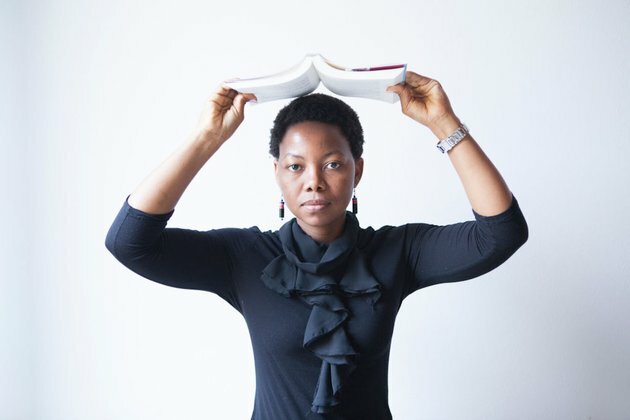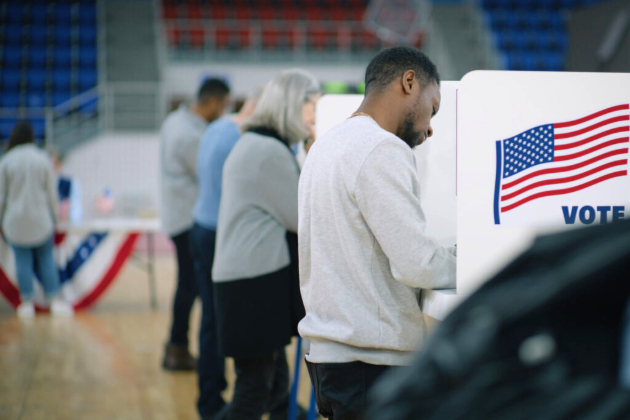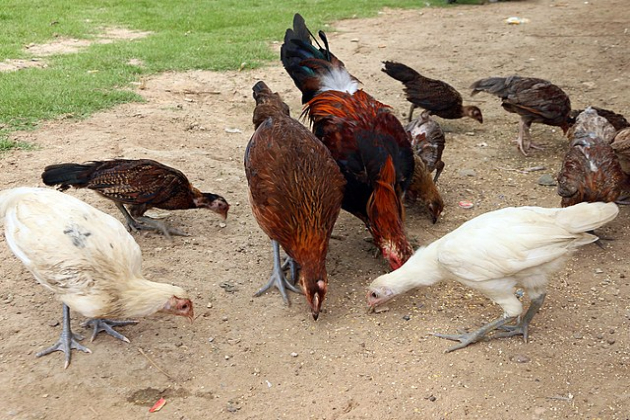Zimbabwean names are still haunted by the ghosts of colonialism
The Conversation
21 Sep 2023, 20:10 GMT+10

In African cultures, the names given to children play an important role because they are often laden with meanings.
As a team of professors of literature, linguistics and onomastics (the scientific study of names and naming practices) we have shown in our research that the names parents give their children at birth can help us make sense of many things, including a family's heritage and events in history.
Our most recent research paper analyses naming practices in Zimbabwe. It shows that Zimbabweans in the former British colony in southern Africa still often choose English names like Robert or Oliver over traditional ones like Vulindlela or Ntombenhle.
We conclude that names make it possible to understand the effects of colonialism and, in more recent years, the importance placed on restoring tradition. Embracing traditional practices matters as a way of keeping culture alive so that people can benefit from its knowledge.
Relics of colonialism
English-language names are abundant in Zimbabwe today. This could be one of the effects of the introduction of colonial languages and the displacement of indigenous languages. It demonstrates the difficulty of erasing the mentalities acquired in the colonial era.
We argue that British missionaries and colonisers "invaded" the "mental" space of the colonised and significantly changed the way Zimbabwean people use English and indigenous languages to name children.
Read more: How schools use language as a way to exclude children
"Typical" English names maintain a connection to a time when schoolchildren would often be given new, English names to mould them into British-like subjects.
Names in literature
Literary works can help us better understand names and naming patterns. Celebrated Zimbabwean author Yvonne Vera's novel Butterfly Burning, for example, shows how names in Zimbabwe's Ndebele language were progressively abandoned for English ones.
This change saw the use of abstract English names such as Gilbert instead of meaningful indigenous ones like Vulindlela, a boy's name meaning "open the way" that expresses the parents' hope that the child will bring good fortune to the family.
This cultural shift can be considered a form of erasure of a significant component of indigenous cultures. Such erasure is part of the larger-scale losses suffered through colonisation. This cultural loss was never fully recovered even in the decades after independence in Zimbabwe in 1980.
Naming practices in Zimbabwe today
There's evidence that, in the last couple of decades, parents in Zimbabwe use both English and indigenous languages to name their children. Naming practices from colonial times live on.
In Zimbabwe these English names fall into different categories. There are typical English names like Ashley and Jean. There are also biblical names, like Isaac and Peter. We also find Africanised biblical names such as Jowero (Joel) and Mateu (Matthew).
And then there are "Zimbabwean English" names like Decent and Choice: English names translated from indigenous names. Zimbabwean English names offer an opportunity to understand the potential of drawing from traditional African knowledge - where names record personal experiences and aspirations - through using English. Colonial entanglements reveal adaptations of traditional forms.
We also notice "religious" names translated literally from indigenous names - like Takomborerwa (We have been blessed). The alterations are clear effects of colonialism, emanating from the establishment of Christianity. Examples of these "vernacular Christian names" include the Shona language names Tapiwanashe (We have been given by God), Tawananyasha (We have found God's grace) and Anotidaishe (God loves us).
Biblical English names and Africanised biblical names
Like the English language, Christianity was at the heart of colonialism in Africa, spread through missionaries. This saw the increased popularity of biblical English names in Zimbabwe.
"Africanised biblical" names are related to Christian biblical names, adapted to "fit" indigenous language rules of grammar. Since the translated Bible remains an "English book", Africanised biblical names do not become indigenous names, rather they remain biblical English names. For instance the Shona name Ruka is adopted from the biblical name Luke. Ruka is simply a Shona version of Luke.
Zimbabwean English names
Besides typical English, biblical English and Africanised biblical names, a large category of Zimbabwean English names are popular at present. These have also been called "non-standard" English names to disrupt the dominance of British English that created tropes like "hilarious names". Examples of such names are Bastard and Darling - used in Zimbabwean novelist NoViolet Bulawayo's award-winning novel We Need New Names.
The majority of Zimbabwean English names are literal translations of indigenous personal names, illustrating the enduring power and assumed prestige of the language of Empire. At the same time, translating indigenous names shows a clear interest by Zimbabweans in retaining indigenous values and naming patterns.
Refashioning imperial debris
In these uses of English names with and without indigenous equivalents, the long-term effects of the language of colonisation are made visible.
Read more: How the history of Zimbabwe played out on the country's cricket fields
So, on the one hand, these names tell a story about how indigenous ways of life were looked down on and how this colonial disdain still influences people's naming choices. This could be a result of an internalised colonial mentality in which the English language continues to index the power and prestige that it accumulated through the violence of the colonial era.
On the other hand, we see how these Zimbabwean English names draw on longstanding indigenous traditions and creatively reclaim the English language for local purposes. From this perspective, we interpret naming trends in Zimbabwe as a creative refashioning of imperial debris that helps keep traditional knowledge alive.
Author: Tendai Mangena - Professor of African Studies, University of Leeds 
 Share
Share
 Tweet
Tweet
 Share
Share
 Flip
Flip
 Email
Email
Watch latest videos
Subscribe and Follow
Get a daily dose of Massachusetts Sun news through our daily email, its complimentary and keeps you fully up to date with world and business news as well.
News RELEASES
Publish news of your business, community or sports group, personnel appointments, major event and more by submitting a news release to Massachusetts Sun.
More InformationInternational
SectionUS expands oil, gas leasing and eases Alaska energy restrictions
WASHINGTON, D.C.: U.S. Interior Secretary Doug Burgum has announced plans to open more land for oil and gas drilling in Alaska and...
Lawmakers push for fewer military flights in Washington D.C. area
WASHINGTON, D.C.: Ten Democratic lawmakers in the U.S. House of Representatives have asked the Pentagon to reduce military training...
Delta crash-landing probe finds dangerous descent before touchdown
TORONTO, Canada: An initial investigation into last month's dramatic Delta Air Lines crash-landing in Toronto has revealed that the...
New York court blocks law allowing over 800,000 non-citizens to vote
NEW YORK CITY, New York: New York State's highest court has struck down a law this week that would have allowed over 800,000 legal...
40 times more people killed in Gaza than in the 7 October attack
The death toll in Gaza on the weekend has passed 50,000, local health authorities have reported. What started the carnage was the Hamas-led...
USDA pledges $100 million for bird flu research, vaccine development
WASHINGTON, D.C.: The U.S. Department of Agriculture (USDA) has announced plans to invest up to US$100 million in research to develop...
Business
SectionTicketing platform StubHub to float IPO
NEW YORK CITY, New York: StubHub is getting ready to hit the trading floor. The popular ticketing platform has officially filed to...
Wall Street on edge but major indices notch up marginal gains
NEW YORK, New York - The rally in U.S. stocks petered out Tuesday, however tech stocks made a modest gains, while the industrials edged...
Canada’s carbon tax faces pushback from politicians, oil industry
CALGARY, Canada: Canada's carbon pricing policy, long a central pillar of its climate strategy, is facing mounting pressure as political...
J&J to invest $55 billion in US as trade tensions rise
NEW BRUNSWICK, New Jersey: Johnson & Johnson is ramping up its U.S. investments even as global trade tensions resurface with plans...
UAE unveils $1.4 trillion US investment plan over next decade
WASHINGTON, D.C./DUBAI: The United Arab Emirates is significantly expanding its financial footprint in the U.S. with a new investment...
Wall Street jumps sharply on easing trade war tensions
NEW YORK, New York - Investors bought up stocks on U.S. markets Monday after President Donald Trump indicated he may pull back on some...













